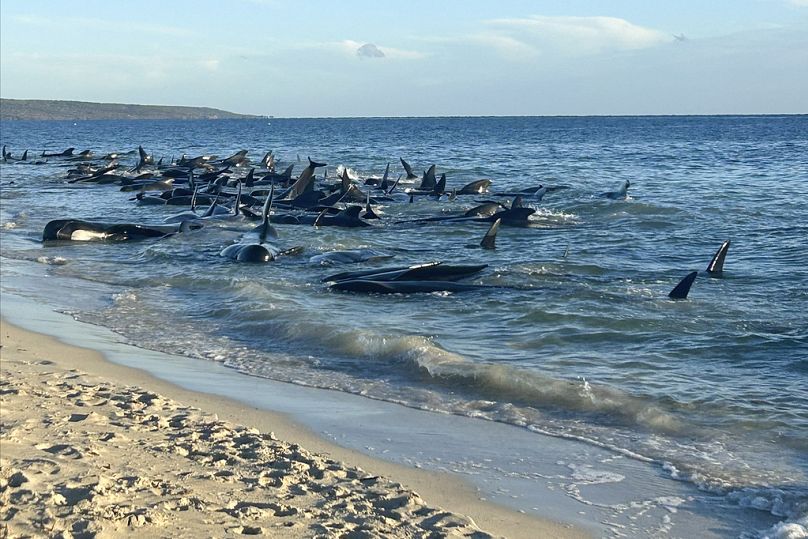Rescue efforts are underway, but at least 26 of the whales have died.
Up to 160 long-finned pilot whales were stranded on the western Australian coast on Thursday. At least 26 casualties were reported before wildlife authorities could begin a rescue attempt, officials said.
 ADVERTISEMENT
ADVERTISEMENT
 ADVERTISEMENT
ADVERTISEMENT
The stranded whales were from four pods spread across 500 metres of shore, according to the Department of Biodiversity, Conservation and Attractions. An additional 20 whales were in a pod about 1.5 kilometres offshore and 110 whales formed a pod closer to the beach.
“Our team is making every effort to safely respond and keep volunteers and staff safe, while also acting in the best interests of the whales,” the department said.
“Our team is assessing the conditions of the whales that have been stranded on the beach. Our teams on the water are trying to keep the animals together and away from the beach.”
What caused the mass whale stranding in Australia?
Regional wildlife officer Pia Courtis said the whales were believed to have become stranded early on Thursday. She said the pod of 110 whales was “sticking together offshore” and was likely to come toward the beach.
“Unfortunately the outcome for our pilot whales once they strand on the beach is generally not good. We have high numbers of animals that end up dying,” Courtis said in a video statement.
Scientists don’t know what causes whales to strand, although it appears their location systems can be confused by gently sloping, sandy beaches.
Theories include that they are avoiding predators such as killer whales, or following a sick leader ashore. Human-made undersea noise could also interfere with their navigation.











